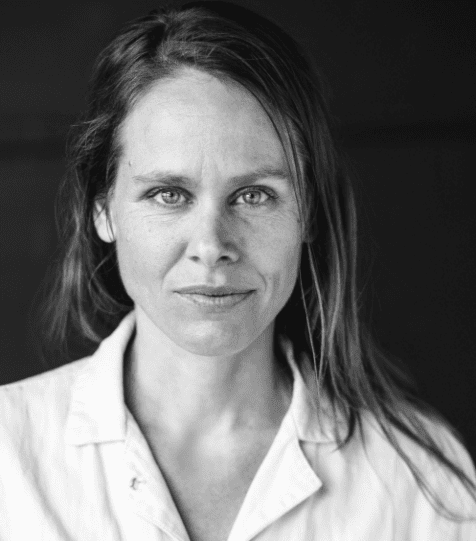Jill Connell’s new bilingual play HROSES: Outrage à la raison is happening from February 22 to March 4 at Waterworks (505 Richmond street). An “impossible” love story, HROSES (pronounced horses) depicts English-speaking Lily and French-speaking Ellery at their first meeting. The moment they meet is also the moment of their death, in a play that compresses one hundred years into a single moment.
We caught up with Connell this week.
SDTC: Was this play based on your own experience with ‘impossible love’?
JC: Yes. It was inspired by a four-year love affair I had with a magnificent writer. He was one of the most passionate and singular people I had ever met. Our relationship ended at the Edmonton airport when I left to train at the National Theatre School of Canada in Montréal. Heartbreak seemed to magnify the world around me. Things felt massive and molecular. The heightened world of HROSES was the only way I could express the beauty of loving this person, and the tragedy of not being able to sustain it.
Can you walk us through your process to develop this work – did it all come to you at once or has this idea been percolating for some time?
HROSES felt like it arrived all at once, though it took me eight months to write it down. Creating the bilingual version with Mireille Mayrand-Fiset began in 2010 and was a wonderful process that took around two years. Our creative team has been developing this piece since 2014, and we now have the opportunity to extend our aesthetic into producing an event in two industrial venues in two cities. I find the process of making a production often mirrors the content of the play itself. So with HROSES, our process has been visceral and intense and seems to bend time. Perhaps it is the case that everything that has been percolating in you your whole life arrives all at once in the making. And what arrives is what you are able to do on that particular day with the people around you. And then one day you are doing that thing together in front of an audience.
Can you walk us through a typical day in your life, from getting up until going to bed?
These days there are no typical days. I wake up in a lot of different places. It has been challenging for me to find balance as a theatre artist, especially since I started producing my own work. Making plays seems to eclipse taking care of basic necessities, and it feels like this can only be sustained for so long. It is a puzzle to me whether this can change, or whether this kind of intensity is necessary to creation. But I get to work with and learn from the most brilliant people. I love the dynamism of the work, and I know I am fortunate to do it. After HROSES, I am excited to write again, and to have more time to attend to what’s going on around me.
Why did you want to become a playwright?
Maybe because I wish the world were a little different than it is. By writing plays I get to inhabit other realities, and perhaps, create alternative conversations and alternative ways of being. I get to invite other people into these worlds—as collaborators, as audiences—and the work is reflexive to their input. I love creating plays in collaboration with other artists over a long period of time. I love that theatre depends on physical bodies that must gather in live time. I love the complexity and changeability of other human beings. The exchange that happens is always in movement.
Why did you want to open up the staging to new interpretations with each performance? What have been the challenges and rewards of doing this?
Any new staging is a result of the way our team works, not the goal. The staging is open within a structure, but it is not arbitrary. I developed this approach to my text alongside Montréal choreographer Tedi Tafel, and alongside HROSES performers Sascha Cole and Frédéric Lemay. Tedi has a physical practice based in listening and impulse, and this is the groundwork for the aliveness of the piece. The work is to achieve a rigorous understanding of the story and then to create a structure so we can work in the unknown. Sascha and Fred have the challenge of doing this practice live, while aiming for the heart of the story each night. The generosity and vulnerability of their work is palpable. I find it incredibly exciting to watch.
What do you want audiences to take away from this?
I would like for audiences to trust their own experience. HROSES is performed in two languages and it follows an emotional arc, rather than a linear one. My hope is that audiences aren’t too worried about comprehension. I want to offer a visceral experience that extends beyond language, where there is space for interpretation. Last week at our Montréal opening, one audience member expressed they found it bottomless. Several people said HROSES felt like a performance experience, more than a play. These felt like nice compliments, given what our team set out to explore.
Get tickets to HROSES here.



 Follow Us On Instagram
Follow Us On Instagram
